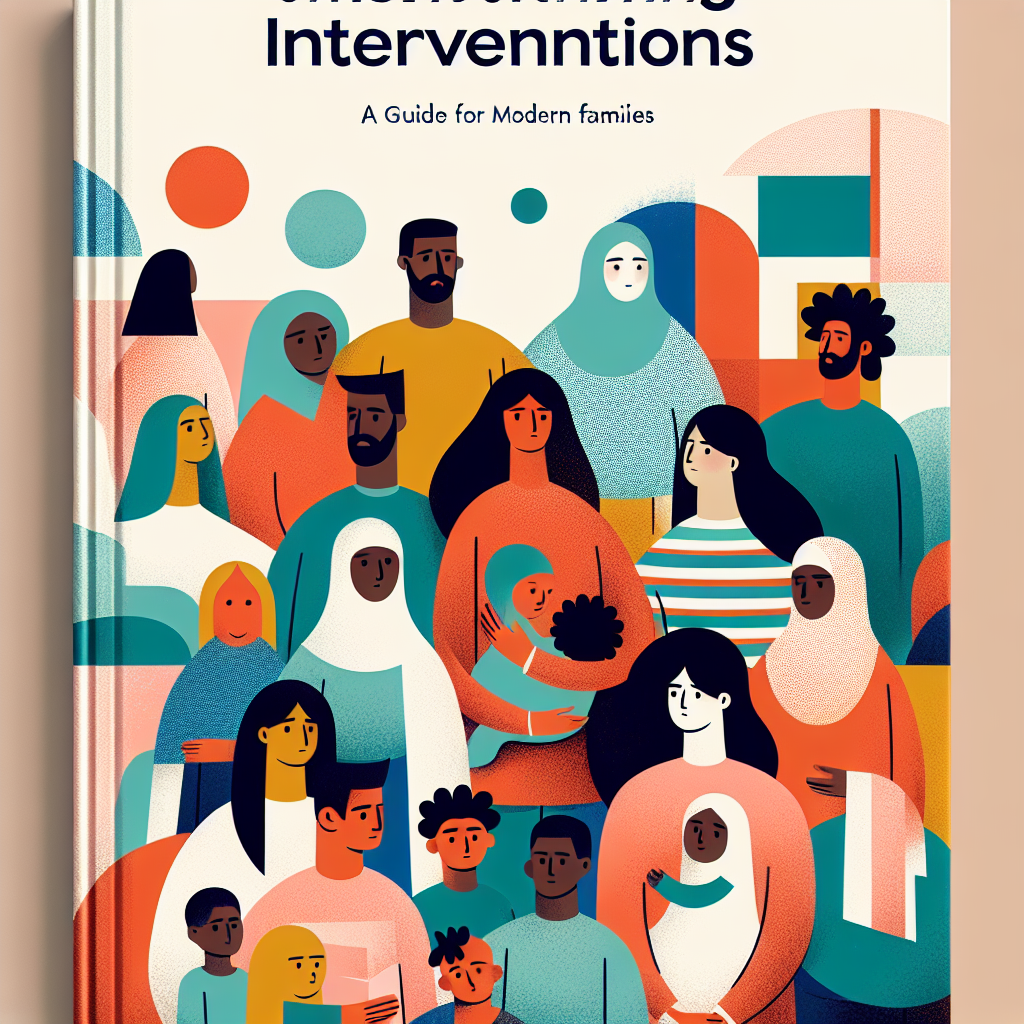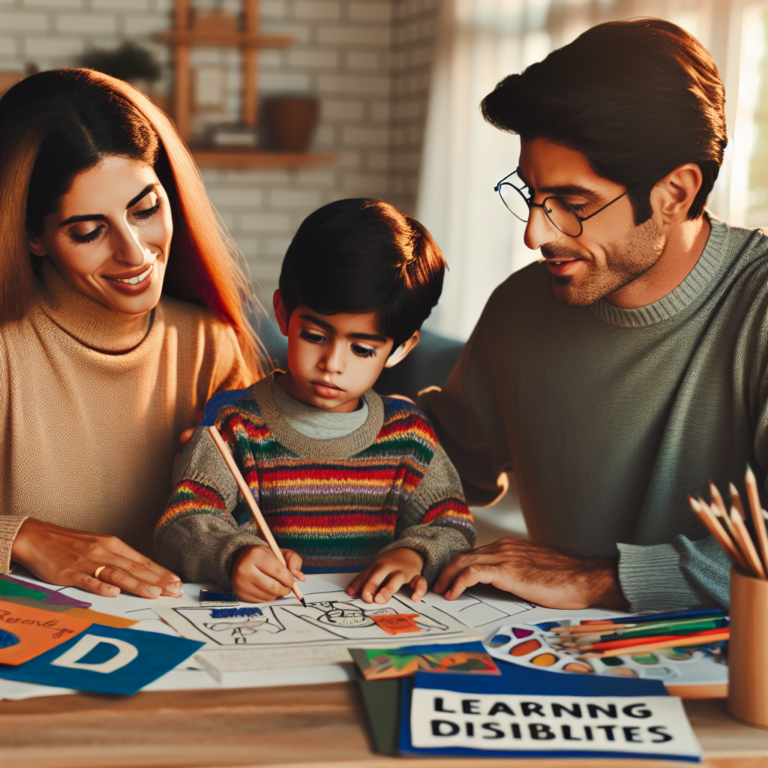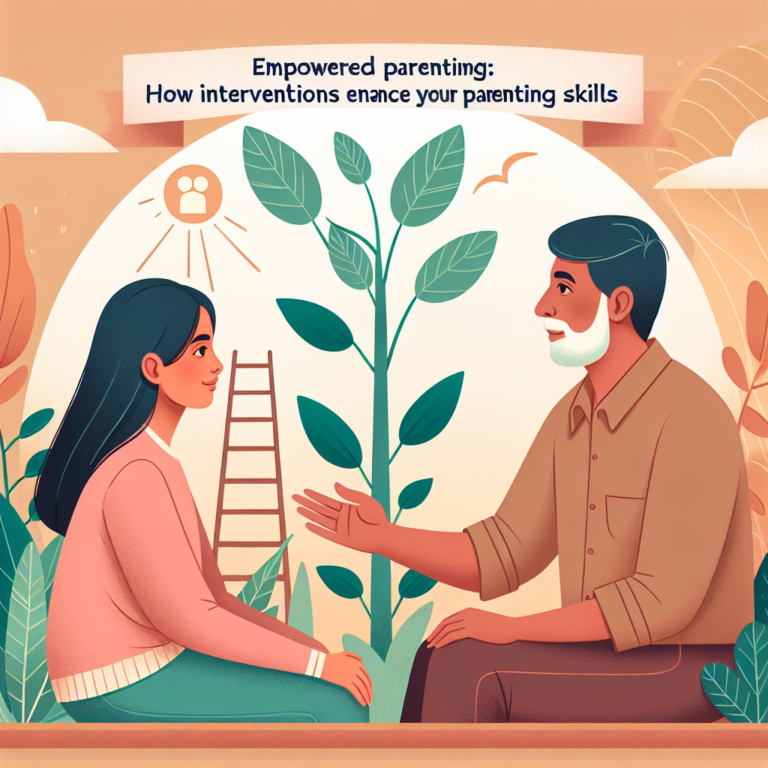
Introduction
In today’s rapidly changing world, parenting might feel like navigating a ship through a stormy sea. With so much information available—ranging from expert advice to social media trends—modern families often find themselves feeling overwhelmed. This is where Understanding Parenting Interventions: A Guide for Modern Families comes into play, illuminating the path to effective parenting strategies that not only promote children’s well-being but also enhance family dynamics.
A well-implemented parenting intervention can transform challenges into opportunities, fostering a nurturing environment that promotes healthy development. This guide will walk you through various parenting interventions, backed by research and real-world applications, to empower you in your journey as a parent.
What Are Parenting Interventions?
Parenting interventions refer to structured programs or methods designed to improve parenting skills and enhance parent-child interactions. These interventions can range from specific behavioral techniques to comprehensive programs addressing various parenting aspects, such as discipline, communication, and emotional support.
Types of Parenting Interventions
Behavioral Interventions
- Focused on modifying specific behaviors through reinforcement strategies.
- Example: Positive reinforcement for good behavior, such as praise or rewards.
Cognitive-Behavioral Interventions
- Aim to change thought patterns that affect parenting approaches.
- Example: Helping parents challenge negative thinking that may lead to ineffective parenting.
Parent Training Programs
- Comprehensive programs designed to train parents in effective strategies.
- Example: The Triple P (Positive Parenting Program) that teaches parents various skills across different scenarios.
- Family Therapy
- Involves working with the whole family to improve dynamics and communication.
- Example: Therapy sessions that target relationship issues impacting parenting styles.
Case Study: The Success of Triple P in Community Settings
Let’s take a closer look at a successful implementation of the Triple P program, which illustrates the impact of parenting interventions in real-world settings.
Background
In a suburban community plagued by rising behavioral issues among children, local schools and health authorities collaborated to introduce the Triple P program. Parents were invited to participate in workshops designed to teach positive parenting techniques.
Implementation and Results
Through a series of engaging workshops, parents learned how to apply principles of positive reinforcement and effective discipline. Post-implementation studies revealed a significant reduction in behavioral issues among children, with parent-reported improvements in family relationships and stress levels.
Analysis
This case study exemplifies the potential of structured parenting interventions—when adequately implemented, these programs can lead to substantial positive changes in child behavior and family dynamics. Understanding Parenting Interventions: A Guide for Modern Families can make these tools accessible to others facing similar challenges.
The Science Behind Parenting Interventions
Research shows that well-structured parenting interventions lead to measurable improvements in child development outcomes and parent-child relationships. Theoretical frameworks such as social learning theory and attachment theory provide a solid foundation for understanding why these interventions work.
Key Findings in the Literature
- Long-Term Benefits: A study published in the Journal of Family Psychology demonstrated that children whose parents underwent intervention showed lasting improvements in social skills even five years later.
- Skill Acquisition: In another study, findings revealed that parents who engaged in cognitive-behavioral approaches reported better emotional regulation and lower levels of stress.
Table: Overview of Types of Parenting Interventions
| Intervention Type | Focus Area | Methodology | Target Audience |
|---|---|---|---|
| Behavioral Interventions | Behavior Modification | Positive Reinforcement | General Parent Groups |
| Cognitive-Behavioral | Thought Patterns | Cognitive Restructuring | Parents with Challenges |
| Parent Training Programs | Skill Development | Workshops and Interactive Sessions | All Parents |
| Family Therapy | Family Dynamics | Therapy Sessions | Families in Conflict |
The Role of Technology in Modern Parenting Interventions
With the advent of technology, parenting interventions have evolved from traditional methods to include digital tools. Online platforms and mobile apps provide easy access to valuable resources.
Digital Tools in Parenting Interventions
- Apps for Progressive Parenting: These platforms offer tools for monitoring child behavior, tips for handling specific situations, and forums for parental support.
- Webinars and Online Courses: Experts provide education through these digital avenues, making it convenient for busy parents.
Case Study: The Magic of Online Parenting Support
In one community, a group of parents utilized an innovative app designed for positive parenting. The app provided them with daily tips, reminders, and a community forum for exchanging experiences. Feedback highlighted increased parent engagement and reduced feelings of isolation among participants.
Analysis of Technology’s Impact
The incorporation of technology into parenting interventions offers flexibility and accessibility, crucial factors for today’s busy families. As part of Understanding Parenting Interventions: A Guide for Modern Families, these tools may serve as a bridge, making essential parenting strategies more approachable.
Common Concerns and Misconceptions Regarding Parenting Interventions
1. Are parenting interventions only for struggling parents?
No. While parenting interventions are highly beneficial for those facing specific issues, they can also enhance the skills of any parent seeking continuous improvement.
2. Will my child resist these interventions?
Children may show initial resistance, but consistent application and positive reinforcement can lead to acceptance and improved behavior.
3. Do these interventions require a lot of time?
Many parenting interventions are designed to fit into busy schedules. Short sessions or even mobile app-based strategies can be both effective and time-efficient.
4. Are parenting interventions scientifically supported?
Yes, significant research underscores their effectiveness in various areas of child development and familial relationships.
5. How do I choose the right intervention for my family?
Assessing your family’s specific needs and consulting professionals can help you identify which intervention might be the best fit.
Conclusion
As modern families navigate the complexities of parenting, understanding the diverse range of effective parenting interventions can light the way. Through structured training, digital tools, and community support, every parent can harness successful strategies to nurture healthy and resilient children.
Leveraging insights from Understanding Parenting Interventions: A Guide for Modern Families, you can transform potential hurdles into stepping stones toward a stronger family bond. Take action today; explore the interventions available and strive for the positive change you envision for your family.
FAQs Section
What are common goals for parenting interventions?
Common goals include enhancing communication, improving child behavior, and fostering emotional development and resilience.
How can I find a parenting intervention program near me?
You can search local health departments, schools, or mental health centers, or consult online directories that specialize in family services.
What should I expect during a parenting intervention program?
Expect discussions, skill-building workshops, and possibly one-on-one coaching, all tailored to equip you with practical strategies.
How can I support my child during these interventions?
Encouraging open communication about the process and celebrating progress can foster a positive environment for both you and your child.
Are there parenting interventions targeted at teens?
Yes, there are several programs specifically designed to address the unique challenges of parenting teenagers, focusing on communication and conflict resolution.
In closing, remember—parenting is a journey. Equip yourself with the right resources and interventions to navigate your path with confidence and care.















